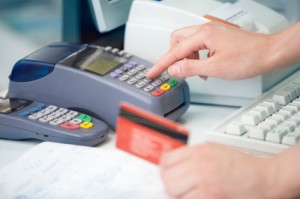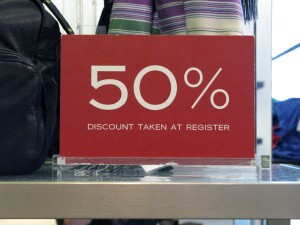 For novices in the world of credit, credit cards must seem like modern day miracles. Nowadays, these small, personalized pieces of plastic with their magnetic strips or smart chips can be used to obtain cash or purchase most any kind of goods or services the world over.
For novices in the world of credit, credit cards must seem like modern day miracles. Nowadays, these small, personalized pieces of plastic with their magnetic strips or smart chips can be used to obtain cash or purchase most any kind of goods or services the world over.
The FREE credit card chaser is your best source for credit cards of all types!
While seemingly complex, the credit card transaction process is really quite simple. One of the best websites for explaining how credit cards work, contains a series of lessons aimed at high school students and developed by PBS, the Public Broadcasting System.
Titled “Electric Money,” this unique teaching guide contains both outlines and detailed explanations for all parts of the credit card process. This handy guide is written in clear understandable language and touches on all parts of credit card commerce, from the application process to a discussion of economics and the global impact of credit cards and e-commerce.
The Purchase Transaction Process
Today, a credit card may be presented for payment in one of several different ways including by phone, facsimile or more commonly online, via an Internet computer interface.
The most traditional method for payment is presenting a credit card in person.
Merchants that accept credit cards are equipped with POS or point of sale terminals that read encoded customer information contained in the card.
This information can be attached to a magnetic strip fixed to the back of the card or coded on a computer chip embedded in the credit card. Cards of the second type are known as smart credit cards. Many countries, especially in Europe, have already converted to this more secure credit card system.
Once the customer information is collected, it is usually transmitted electronically to a merchant services provider who is connected directly to the Visa or MasterCard network. The service provider is able to instantly verify the customer account information and available credit and approves (or declines) the transaction.
 Once approved, the customer is generally required to sign for the transaction and may then leave the store with their purchases. In recent years, signatures are no longer required by many banks for small transactions of only $25 or $50.
Once approved, the customer is generally required to sign for the transaction and may then leave the store with their purchases. In recent years, signatures are no longer required by many banks for small transactions of only $25 or $50.
After the purchase transaction is concluded by the store, the network process continues as arrangements are made for the credit card issuing bank to release funds to the merchant’s bank. The merchant will receive payment within a day or two of the transaction, just as the debit for the purchase will be posted to the cardholder’s account within the same time frame.
Some credit card issuers such as American Express and Discover eliminate the need for third party processing agents. These banks work directly with retail merchants and pay them directly for purchases made using their credit cards.
How Banks Profit from Credit Card Transactions
There are a number of fees charged at each step of a credit card transaction. Consumers are best acquainted with the interest that is charged on their outstanding credit card account balances. On average, interest rates fluctuate between 11 and 14%, but can range as high as 20, 25, or even 30%!
Special fees may be added to cardholders’ accounts for certain types of transactions such as cash advances or ATM withdrawals. In addition, many banks charge annual membership fees.
All fees come right out of consumers’ pockets and are paid directly to the credit card issuing banks.
Merchants are also charged fees for each credit card transaction that they process. There may be flat fees charged per transaction as well as percentage fees for each sale. The Visa and MasterCard networks also charge dues and membership fees to participating banks and third party service providers who in turn pass the fees right back to the merchants that they represent.
Credit Cards Don’t Have To Cost You So Much
There are several things you should know about your credit card companies. In a recent article posted on the MSN Money website, consumers are told about several ways to save money on interest and the fees their card companies charge.
First, you are the boss! Banks will often negotiate with good credit card customers who are persistent. With patience, you might be able to reduce your credit card interest rate. You can also reduce or even eliminate annual fees. In many cases, your bank may even be willing to remove an occasional late fee.
Get the best deals on credit cards with our FREE credit card finder today!
Similar Articles:
- What do credit card companies charge retailers?
- How do I start to accept credit cards for business?
- What to Know When Processing Credit Cards
- What is a credit card foreign transaction fee?
- How can I set up my web site to accept credit cards online?
- What is credit card processing?
- Pre-Paid BuyRIGHT MasterCard








